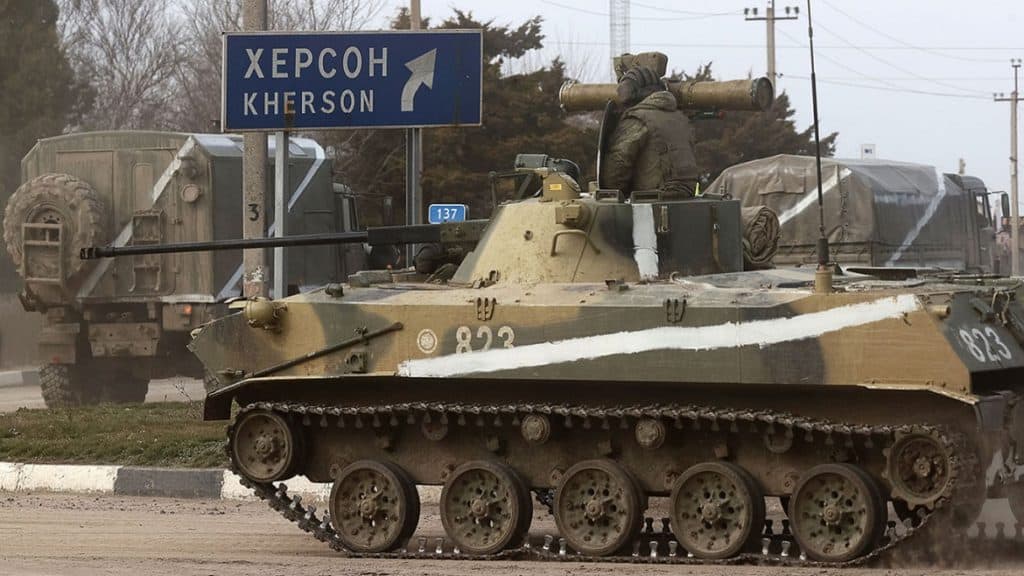By Dragan Vitorovic
On March 24, 1999, NATO initiated Operation Allied Force, effectively sidelining the United Nations and paving the way for similar interventions by the Great Powers.

The unipolar world order, for at least a decade, was reaffirmed. In the midst of the 78-day operation, on May 7, 1999, guided bombs struck the People’s Republic of China Embassy in Belgrade, killing three Chinese nationals. This event inflicted a mini-trauma on Chinese society and provided further guidance for Chinese foreign policy.
On February 24, 2022, nearly 23 years after NATO airstrikes against the Federal Republic of Yugoslavia, Russia initiates the “special military operation”, having announced the objectives of “demilitarization and denazification” of Ukraine. The verbiage of the Russian leadership represents a “defense of the indefensible”, or the prime example of bad political language consisted of euphemisms, question-begging, and vagueness, as noted in the essay “Politics and English Language” (Orwell, 1945). (1) In material terms, the invasion represents a game-changing event that would reshape the international security order, as well as the financial and trade flows in the short to medium term.
The Complex Interdependence and Contingencies
Keohane and Nye (2011), almost four decades ago, established the term complex interdependence, attempting to address the increasing complexity between the participants on the international stage. (2) Arguably one of the most important implications of complex interdependence is the notion that by exploiting the comparative advantage of another participant in the system, the overall gain for both (or more) parties is increased, thus minimizing the possibility of conflict. This holds when the global economic integration is high, however, the possibility for conflict is never nullified, as could be seen in the example of World War One when the global economic integration was at its peak. The current situation bears much resemblance to the period before World War One.
Applying this concept to the Russian invasion of Ukraine, and the consequent reactions of the other Great Powers, it would be helpful to mention the recent interview with David Goldman, who analyzed the economic and political consequences of the invasion. Following the reasoning of Goldman, as well as the recent developments related to the “special military operation”, it appears that the Russian leadership has put several contingencies in place before launching the invasion, although it likely miscalculated the well-coordinated and decisive response from the West, especially in the early days of the invasion.
Nowadays, however, it is questionable to what extent the current European elites will endure the pressure from their citizens if the war in Ukraine continues. Namely, Europe is still very much dependent on Russian energy supplies, and the industrial capacity of the leading European economies could be severely compromised if Russian leadership decides to further weaponize the energy resources.
Spillover to a political domain in Europe would be imminent and likely harsh, especially if it would take place during the heating season. Additionally, the war of attrition against Russia can hardly be won, as long as Russia has a steady financial inflow from the West (speaking of interdependencies) and pursues alternative supply chain routes on the global scale with mixed success. (3) Certainly, many developments could not be attributed to the Russian or Chinese strategic geniuses, but the unpredictable behavior of the aggregate international system when caught in the fog of war. (4)
China and Russia: A Strategic Calculus or True Partnership?
Discussions between the policy experts have recently coined a term that could effectively depict the Chinese stance towards Russia: “pro – Russian neutrality”. Eventually, this term could complement the article of Buckley (2022), referring to the well-organized internal support for Russia in China. The support, orchestrated by CCP, included the propaganda documentary in favor of the Russian President. Nevertheless, as it could be seen, the Chinese support for Russia is far from unconditional and unlimited.
First, Russia and China have an asymmetrical economic relationship. China could relatively easily integrate Russia into its economic orbit, (5) providing almost everything that the Russian industrial capacity may lack. However, China is aware of the possibility of secondary sanctions and would prefer to avoid the increased scrutiny by the West. That is one of the reasons for the Chinese relatively low profile in providing tangible and meaningful support to Russia in its military effort.
Also, China, especially in the short term, has no alternative to the US financial markets. The US financial markets represent the strategically important markets for China and its growth strategy (interdependencies, again). Seeing the world from the Russian perspective, the Russian elites are much more sympathetic toward European values, and their self-perception is much more pro-European and pro-West than pro-Chinese or pro-East.
Second, for many authors, Russia and China have similar political cultures and a similar world view. That is only partially true, argues Lo (2022), stating that, while China pursues its objectives through the established international and financial system, Russia adopted the role of disruptor. China, states Lo (2022), is in favor of a well-positioned, orderly financial system, with known rules of the game, unlikely as in the case of Russia, which attempts to create opportunities for itself via disturbance and coercion. In short, the relationship between Russia and China is an example of strategic calculus.
Speaking of further differences between the two challengers in the international system, Radchenko (2022) points out that Russia and China have no defined alliance, no security obligations to each other, and no interoperability. In simple words, the relationship between Russia and China is some form of friend-enemy relationship, depending on the circumstances. Feigenbaum (2022) went even further, stating that in business terms Russia is not important to China and that China is rather ambivalent towards Russian dealings with Ukraine. The research paper of the same author from 2022, insists that the Chinese ambivalent and seemingly contradictory stances necessarily imply the risk that could materialize only on the adverse side (Feigenbaum, 2022). However, in an era of international order plasticity, the risk could pose an opportunity to exploit the current stream of events. Within this consideration, the Chinese ambivalent position might be the optimal one, weighing in the tactical and strategic dimensions. (6)
Insistence on the differences between Russia and China, however, would blur the importance that the two Great Powers give each other. The cooperation in cyber and naval dimensions has been in steady expansion, and, ironically, a set of sanctions against Russia provided significant strategic insight to China. The seizure of the Russian Central Bank assets, valued at USD 300 billion, implored an increased caution of China in its relations with Taiwan and signaled that the West could bend its rule-based order if circumstances are too dire.
Furthermore, the weaponization of the financial system (the case of the Russian partial exclusion from SWIFT), and the effective exclusion of Russia from international events and hi-tech markets, in a highly adverse scenario could nudge China towards the consideration of weaponizing its enormous trade capacity. Certainly, this could result in unprecedented damage to the global economy.
Recent events around Taiwan signal that even the most gloomy scenario should not be discarded.
Notes:
1. The Russian strategy in Ukraine appears to be rather reactive, than proactive.
2. Back in the 1970s, the state used to be the basic unit of measurement in international relations. Nowadays, however, despite the reaffirmed importance of the state in the international political economy, there are many other powerful participants.
3. Russia will eventually encounter serious issues with industrial software and sophisticated technology, due to sanctions.
4. The fog of war is a concept adopted from Clausewitz’s “On War”. It is used as a metaphor here.
5. This effort would be a daunting and difficult task, demanding time and political willingness. However, low-level integration frameworks such as the payment mechanism established recently between Russia and China are already in place.
6. Feigenbaum (2022) also emphasized that the Chinese leadership “…”…trying to leverage contradictions to ensure strategic advantage while maintaining tactical flexibility”, so the Chinese ambivalence towards Russia could be by design, and not an accident.
Author: Dragan Vitorovic
(The views expressed in this article belong only to the author and do not necessarily reflect the editorial policy or views of World Geostrategic Insights).







